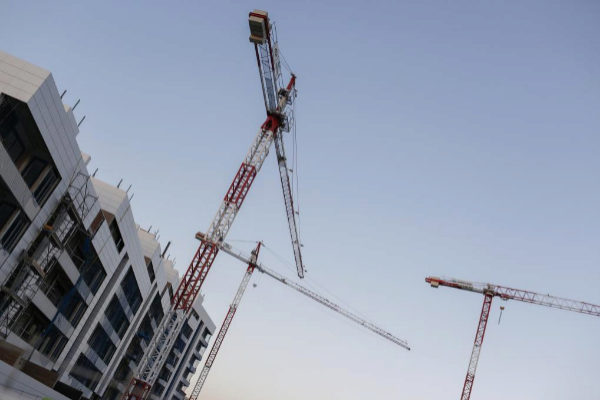- INE.The mortgage firm collapses 30% in August
- Housing: 'Brick' stagnation: lower prices and fewer operations
Last summer it has been revealed as a particularly unfortunate period for the housing market in Spain. To the fall of the sales in August (-21.1%) that was known a few weeks ago, yesterday the collapse of the mortgages granted in that same month was added: 29.9% less than in the same period of the previous year , according to data published by the National Institute of Statistics (INE).
In total, 20,385 contracts were signed, the lowest volume in any month since October since 2016. To find a lower figure, one must go back to July 2016, when 18,707 mortgage loans were totaled. The fall is even greater if you look at the inter-monthly variation. Thus, in August they fell 38.9% compared to the month of July, the largest decrease in the series of the last five years that the INE includes.
The data confirm that the sector is in the process of slowing down , partly expected after the good 2017 and 2018 financial years, and partly driven by the impact of the new mortgage law and the effects of political uncertainty in our country.
Real Estate Credit Act, which came into force on June 16, "has undoubtedly been a delay in purchases and mortgage lending , " says a Fotocasa.
INE itself acknowledged in its note yesterday that the rule "could have affected the data published this month as they were mortgages registered in the Property Registries during August, from public deeds made in the previous months."
The market makes a cautious reading of the falls, but warns of the impact that the economic slowdown and political uncertainty can have in Spain , which on November 10 faces the fourth general elections in four years. "We are witnessing the moderation of the growth of the real estate market that we already predicted for 2019. What remains to be seen is whether this process will be more or less intense due to the evolution of the macroeconomy, the international context, the current political situation and the latest changes legislative ", they affirm from Fotocasa.
It is the same notice that Ferran Font, director of Studies of Pisos.com , launches that "factors such as economic slowdown or political paralysis in Spain are clearly affecting the sector, which needs stability to face the challenges it has in front".
All regions fall
No community escaped the contractions in August, although the cases of La Rioja (-61.5%), Extremadura (-53.8%) and Navarra (-52.9%) were especially notable, where less than half were granted of mortgages than last year. Only the Valencian Community and Catalonia remained below 20%, while regions such as Madrid (-37.6%) or Balearic Islands (-42.5%), where some of the cities with more real estate activity in the country are located, the setbacks are around 40%.
Looking ahead, the forecasts are prudent. "Everything indicates that 2019 will close at activity levels very similar to those of 2018, with about 345,000 mortgages registered, and it will be normal for the next months to continue recording negative data in this statistic in its interannual comparison," but the market of housing will continue to grow, although at a slower rate than in recent years. "
In August, the average amount of mortgages granted increased by 5%, to 128,501 euros. Variable rate loans accounted for 58.2% of the total of those signed, compared to 41.8% of the fixed ones in a context marked by the historical minimums recorded by the Euribor . The average interest rate at the beginning was 2.29% for mortgages on variable-rate housing (with a decrease of 5.4%) and 3.01% for fixed-rate mortgages (0.1% lower) .
According to the criteria of The Trust Project
Know more- economy
- Mortgages
- living place
Housing Mortgage war between banks triggers 'unfaithful' clients and fixed-rate loans
Savings and consumption The bank makes its variable mortgages more expensive: does it take more account to mortgage at a fixed rate?
Mortgage market These are the 5 cheapest fixed mortgages of the month of October

